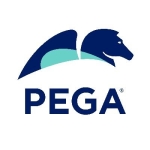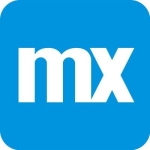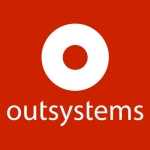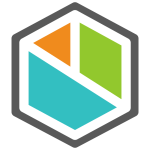What is our primary use case?
It is our customer base, and we use it for just about everything.
I am using the unlimited latest version. It is on the Salesforce cloud.
How has it helped my organization?
We use the whole gamut of it. We use it for customer information. We also use it for prospecting. It has information about our delivery team such as who has got a particular account. It also has any type of service information that is needed, such as billing address, demographics, system information, account teams, and account planning. If we want to delve into a customer, we can account plan and find out what they've got and what their networking environment looks like, and this information is held in our records. If something happens to me, and somebody called about that particular record, they can find this information and pick from where I left off.
It is easy to close pending deals. When a customer signs the paperwork, it has got the e-sign incorporated in it. So, when a customer says, "Yeah, let's move forward with that.", we send an amendment or a contract to the customer via e-sign. They sign it, and it comes right back to us. After that, the person who does the sign off on contracts signs it, and when they're finished with it, it comes right back to me stating that it has been signed and countersigned, and now I can go ahead and process that order and get to the customer a copy of the record so that they have a copy in their records. It is overall an easy place to keep things organized.
What is most valuable?
It is a good solution. It has a learning curve, but once you learn it, it is a very good piece of software to have to keep up with everything, such as cancellations, new accounts, new contacts, and new opportunities. We also sell co-location, so it gives us a lot of data center information, such as what rack this customer is in and how much power they've got on that particular rack. It gives a lot of information. You just need to know where to find it. Once you learn it, it is just easy to navigate.
I can go anywhere with it because it is web-based. All I need to do is get to it, and I can get to my customer. It is pretty straightforward. It's like any piece of software nowadays. It has an application that can be taken with you anywhere. It is on my phone, and it is also on my iPad, desktop, and laptop, so I can take it with me anywhere. It is very easy to use and easy to access.
I like it because of the fact that it lets me know what I'm working on and what I've recently worked on. It also helps me and allows me to do tracking. If I want to go out and find out how many times I've touched customers, I can find that information out. It tracks such information, and we use it. If we send any type of promotions out, it tracks who gets those promotions and how they've responded to those promotions. It is just a well-organized space that kind of has everything that you need to take care of your customer.
What needs improvement?
There is always room for improvement. It can be hard to learn, but when you have somebody who is experienced in this, it is like anything else. It is like Excel, you'll never know everything about Excel, but there's somebody who would possibly know. I'm sure I don't know all of the ins and outs of Salesforce.
In terms of additional features, it has got pretty much everything in there. It has a lot of information, and it is perfect for me. I'm an old-school guy, so I think it's perfect, but I'm sure there's going to be some room for improvement somewhere along the line.
For how long have I used the solution?
I have been using this solution for the last five years, but my company has probably been using it for quite some time.
What do I think about the stability of the solution?
The only glitches that you'll have will be the operator, but once you know the navigation of it all, you won't have a problem with it. It's like anything else you learn.
What do I think about the scalability of the solution?
It is easy to scale. I use the unlimited version, so I've not been stumped on anything here. In terms of usage, all the personnel in our company use it.
How are customer service and technical support?
I've signed up for difficult classes, and they've been Johnny-on-the-spot to help out and to see if there's anything else that they can do. Their customer service is top-notch.
How was the initial setup?
It is pretty straightforward. It is pretty easy to set up accounts.
What's my experience with pricing, setup cost, and licensing?
I don't know anything about its cost, but I'm sure it has got a nice little price tag that goes along with it.
What other advice do I have?
I would recommend this solution to others if they can afford it. It doesn't mean it is expensive. I don't know what it costs, but if you can afford it, it is a good way to get in.
It is a good product, and it has served us well. It keeps us organized, and it keeps us with our customer numbers. It has a learning curve, but you got to start somewhere. Like anything, you have to learn it. If you've got a good attitude and an open mind, you can learn anything.
I would rate Salesforce Platform a 10 out of 10.
Which deployment model are you using for this solution?
Public Cloud
If public cloud, private cloud, or hybrid cloud, which cloud provider do you use?
Other
Disclosure: My company has a business relationship with this vendor other than being a customer: Partner



















